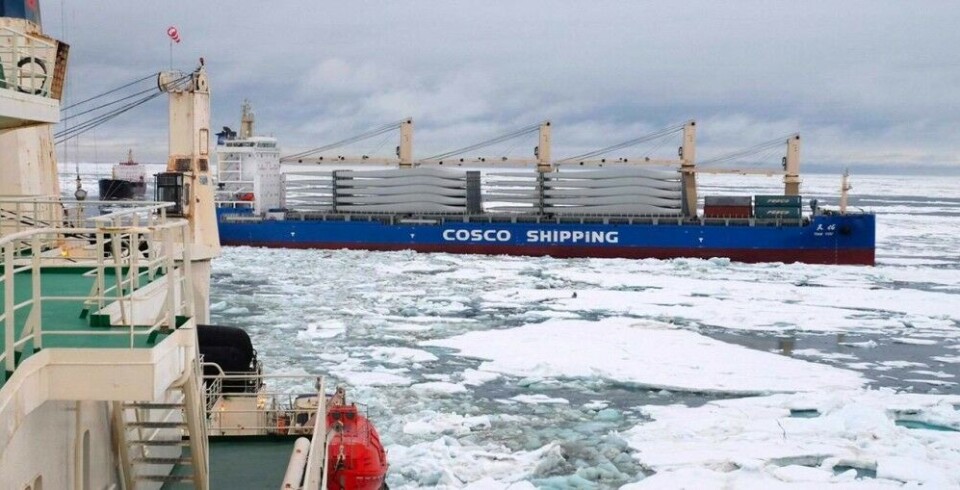
Russia’s Northern Sea Route push is met with scepticism
As Russia increasingly advertises the Northern Sea Route (NSR) as a viable transportation option, three doubts anchor themselves in the international community: high costs of transportation, environmental damage, and disappointing statistics of the route’s demand.
In the aftermath of the “Ever Given” cargo ship that ran aground in the Suez Canal, the Arctic shipping route north of Russia has become an increasingly suggested transportation option. Naturally, Moscow is the main proponent of such a development as an alternative waterway.
The NSR has one clear advantage over the Suez Canal. Timewise, shipping is faster through the route as a cause of the circumference of the Arctic circle being more than two times smaller than that of the Tropic of Cancer, which the Suez Canal is close to. However, there are several grand negatives overshadowing the route’s time advantage. Seemingly, cost is the most reiterated counterargument
Currently, the cost of transportation through the NSR is approximately three times more expensive than that of transportation through the Suez Canal. To oppose this negative, Russian officials are trying increase the waterway’s popularity by artificially reducing the cost of transportation along the NSR.
Yuri Trutnev, the Deputy Prime Minister of Russia, stated on the Northern Sea Route Telegram channel that the transportation of goods across the NSR should currently not be more expensive, and in the long term, be cheaper than transportation through the Suez Canal. To achieve this, Trutnev announced that Russia is willing to create a separate federal program and finance it to reduce the cost of delivery of goods through the Arctic.
However, another catastrophic negative is more difficult to counter: environmental damage. Amongst those who have opposed the idea of the NSR’s transportional growth is the Mediterranean Shipping Company (MSC). MSC has reemphasized its rejection of the NSR on the basis of environmental grounds. Increasing transportation through the Arctic will cause hefty environmental damages including the diminishment of biodiversity, acceleration of melting glaciers and furtherance of global warming as a cause of increased black carbon emissions, air pollution and potential oil spills. According to MSC’s CEO, Soren Toft, as a responsible and environmentally conscious company, the decision of rejecting the route as a potential was an obvious one, the Shipping and Logistics news-portal Ajot reported.
Finally, discouraging statistics of decreased transportation and navigation permits are a third strike the Russian government has to deal with. In the first three months of 2021, more than 7.5 million tons were transported along the NSR, which is 3.9% less than for the same period last year. Additionally, throughout January, February and March, only 56 navigation permits were issued for the water area of the NSR: 10% less than for the same period last year, PortsNews reported.
The combination of Russia’s economic compensations and the issues of the Evergreen accident make the Northern Sea Route seem like a potentially purposed and realistic proposition for now. However, how attractive of a transportation option the NSR will be in the long-term is highly contested and is yet to be observed.
















